Couple whose daughter is in ‘God’s waiting room’ as she waits for a heart transplant issue a desperate plea for parents to sign their children up as organ donors
A couple whose toddler spent more than a year ‘living’ in hospital awaiting a life-saving heart transplant have made a desperate plea for more children to become organ donors.
Amelia Bolter, from Chippenham, was just 17 months old when her mother took her to the GP for a suspected ear infection, but was told the baby was ‘waiting at God’s door’ and should be put on a transplant list.
Amelia, now two and a half, was diagnosed with supraventricular tachycardia, which causes episodes of abnormally fast heartbeats, in June last year.
After being transferred from her local hospital last October, she has spent the last ten months in Great Ormond Street Hospital in London, hooked up to a machine that kept her alive.
Her mother Jodie Woolford, 31, and her partner Rich Bolter, 33, have both signed up to become organ donors since they were warned Amelia would face a two-year wait for a suitable match.
But Jodie said they had to speak out because there is a desperate shortage of child donors.
Jodie Woolford, 31, from Chippenham, has made a plea to help her daughter Amelia (pictured)
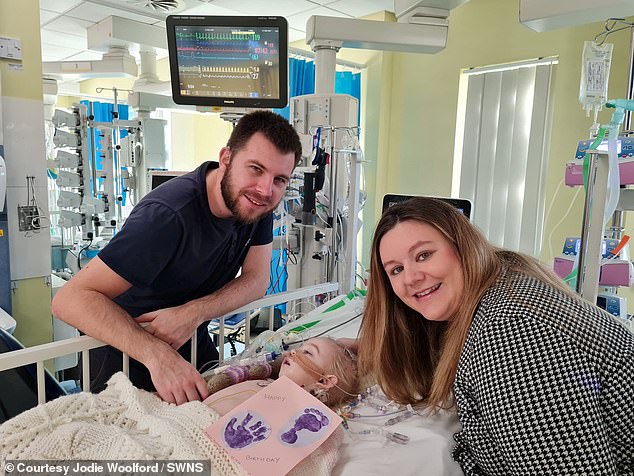
Amelia, now two and a half, was diagnosed in June last year with supraventricular tachycardia, which causes episodes of abnormally fast heartbeat
She said: ‘The problem with Amelia’s condition is that finding child donors is incredibly difficult, and parents rarely talk about organ donation until an accident has already occurred.
‘Then it is usually too late and the organs are unusable. That’s why we want to encourage parents to make a decision now, so that if something happens, their children can live on.
‘We are not the first people whose child needs an organ transplant, and we will not be the last. Even if Amelia sadly passes away, we will try to get her to donate as much as possible to others.”
Amelia was initially taken to her doctors in Chippenham, Wilts, by her mother on June 16 this year.
Jodie thought Amelia was suffering from an ear infection or teething problems as she kept rubbing her ear, but was shocked when the doctor discovered her heart rate was fluctuating between 180 and 220 beats per minute.
She was immediately rushed to Bath Hospital, before being transferred to Bristol Children’s Hospital the same day.
She was later rushed to Great Ormond Street on October 30 last year when she came down with several infections including pneumonia, a bowel infection and sepsis.
Since then, she has undergone several washouts and room change operations to remove blood clots from her heart, and has had two strokes.
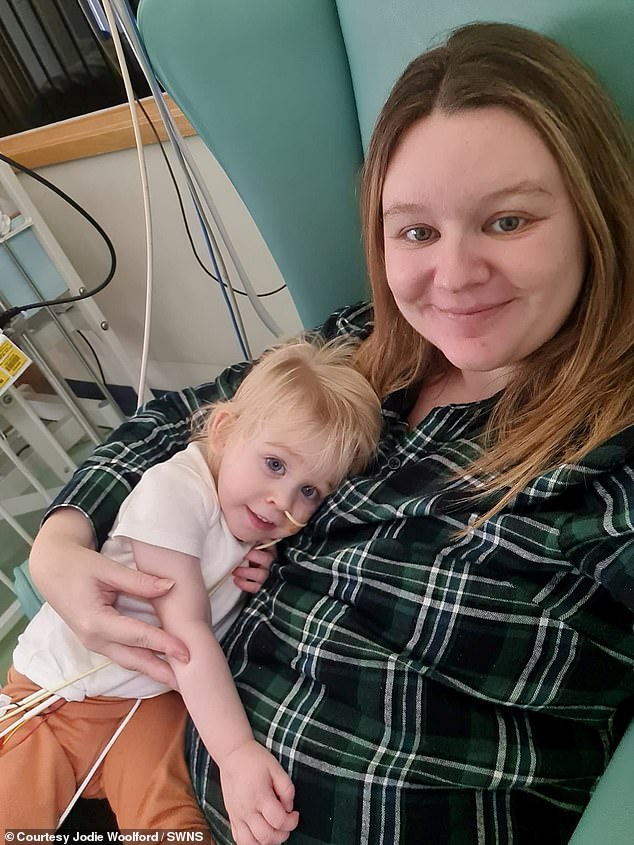
Jodie said they needed to speak out because there is a desperate shortage of child donors
Despite the horrific challenges, her defiant parents are still determined to find her a donor – and are urging fellow parents to consider adding their children to the donor lists.
She said: ‘Parents should never think about outliving their children, but accidents happen and children get sick.
“I signed up to be an organ donor, and so did Rich. We even signed up our second daughter, Blossom, who was born during our time in the hospital with Amelia.”
Amelia remains in Great Ormond Street, where doctors have told her parents they will have to wait two years before Amelia can go home with a new heart.
With support from the Sick Children’s Trust, the family eventually found a place at Great Ormond Street Hospital, where they live in the Trust’s temporary accommodation.
Thanks to the support of the nurses and doctors at the hospital, who Amelia considers her aunts and uncles, she was able to survive her condition – and even started school this year.
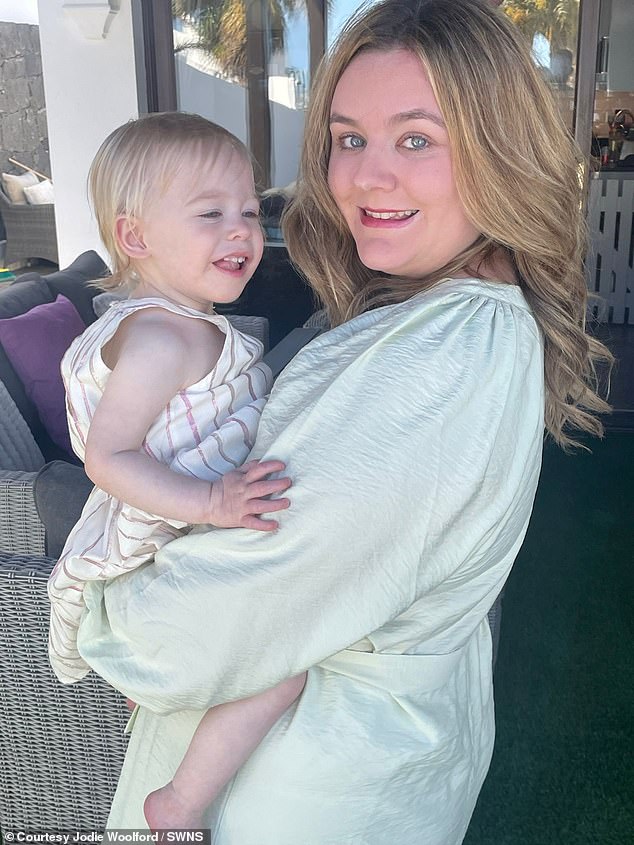
Despite the horrific challenges, her defiant parents are still determined to find her a donor – and are urging fellow parents to consider adding their children to the donor lists.
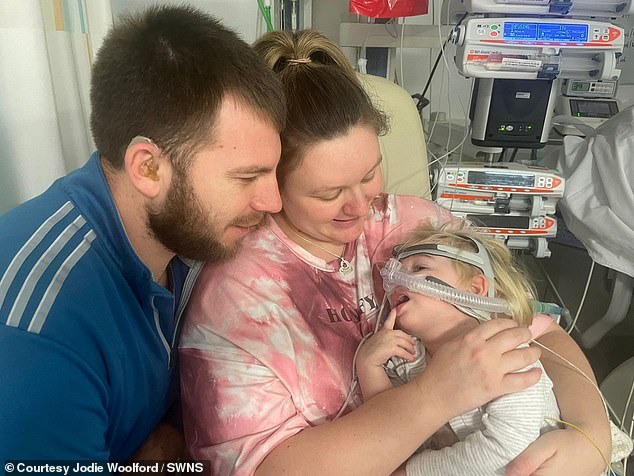
With support from the Sick Children’s Trust, the family found a place at Great Ormond Street Hospital, where they live in the Trust’s temporary accommodation.
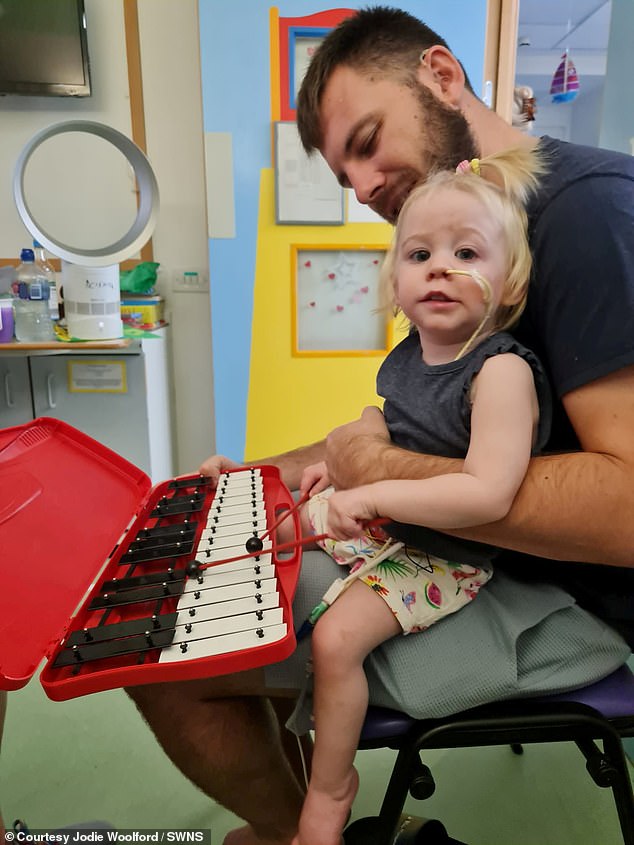
Jodie said her daughter Amelia is now ‘stable’ and ‘loves school’ even though it’s ‘only an hour a day’ – but still ‘wobbly’
Jodie added: “Amelia is stable. She has now learned to crawl and walk independently and her intestines are now working again.
‘She’s still a little wobbly because she always has a wire attached to her that keeps her alive, but she loves it there.
‘I’ve only been home once in the 10 months we’ve been here, but the hospital has given us great support. I feel safe leaving her in their hands.
“She loves school, even if it’s just for an hour a day. They help her with crafts and even ‘cooking’; making sandwiches and fruit salad.
“It’s also meant that Rich and I have some time to ourselves, even if it’s just watching some Netflix while she’s at school or sleeping.
“It’s kind of tragic and sad, in a good way, that she’s so happy here. She considers the hospital her home – which is difficult for us because we would like her to be in her real home.”
Jodie supports The Grand Appeal and the Sick Children’s Trust in their fundraising efforts and aims to raise awareness of heart disease.
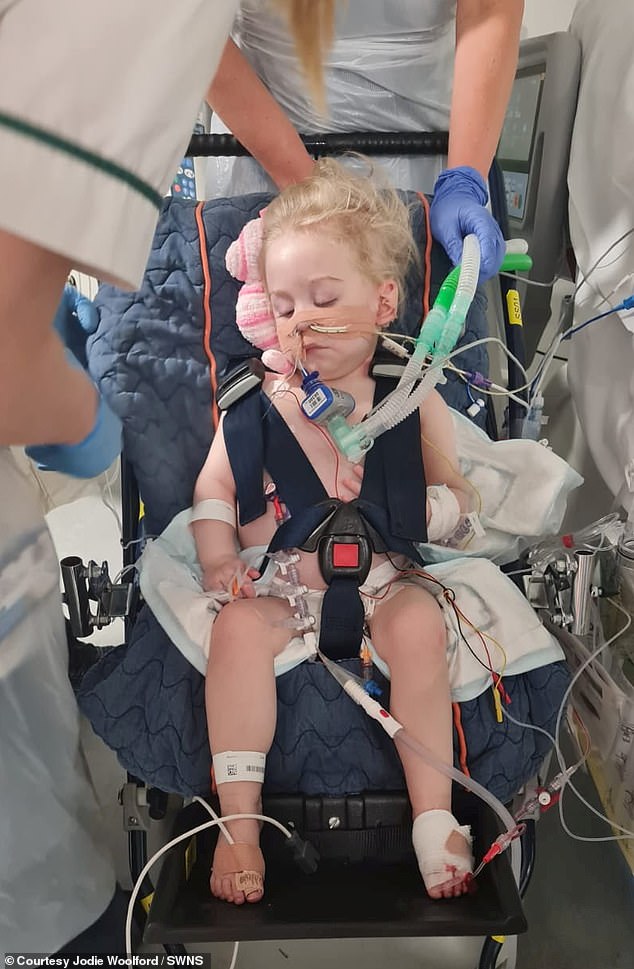
Jodie supports The Grand Appeal and the Sick Children’s Trust in their fundraising efforts and aims to raise awareness of heart disease
She says the process of signing up to be a donor is “quick and easy” and urges parents to talk about it before it’s too late.
She said: ‘Until we know we have a donor, we just don’t know how we will respond. But it would change our lives if we were told one was available.
“Without this machine, Amelia wouldn’t be here. That is why awareness is so important.
‘If she dies, hopefully we can get her to donate her heart valves. It is a comfort to us to know that if something were to happen, a piece of her would live on through another child.
“It would be a wonderful gift for us to get her a new heart, and a selfless act from a grieving parent.” Like us, we hope that others want their own children to live on.
‘Accidents happen, but the death of your child can save the life of someone else.’
